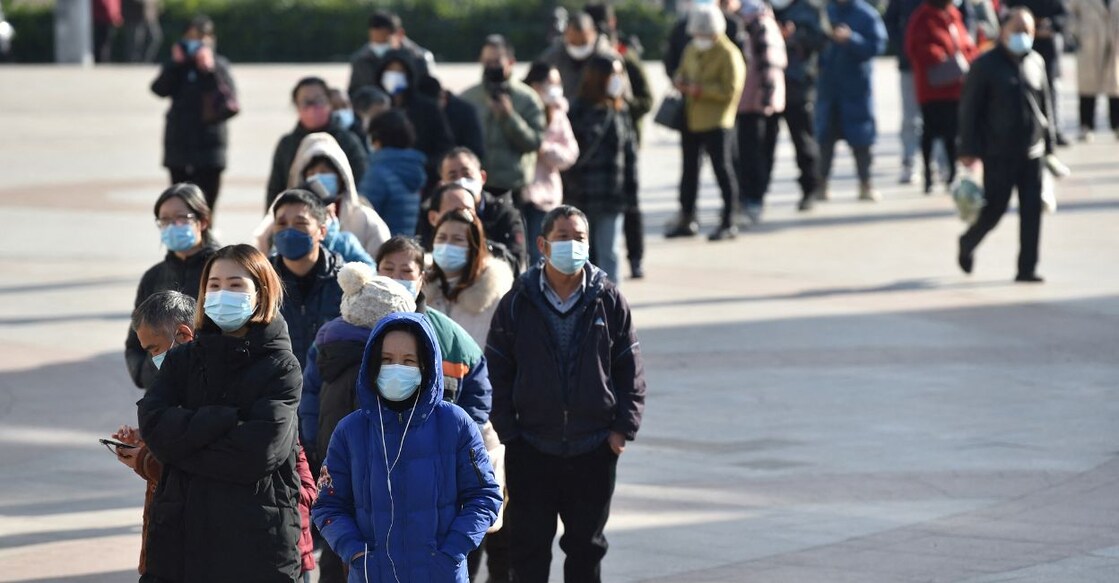'Go all out': China prepares for COVID spread as holiday travel looms

Mail This Article
Beijing/Shanghai: China set out urgent plans to protect rural communities from COVID-19 on Friday as millions of city-dwellers planned holidays for the first time in years after Beijing abandoned its stringent system of lockdowns and travel curbs.
China's move last week to start aligning with a world that has largely opened up to live with the virus, followed historic protests against President Xi Jinping's signature 'zero-COVID' policies designed to stamp out COVID.
But the excitement that met this dramatic u-turn has quickly given way to concerns that China is unprepared for the coming wave of infections, and the blow it could deliver to the world's second-largest economy.
China reported 2,157 new symptomatic COVID-19 infections for Dec. 15 compared with 2,000 a day.
The official figures, however, have become less reliable as testing has dropped, and are increasingly at odds with signs of wider spread on the ground including long queues outside fever clinics and pharmacy shelves emptied of medicines.
There is particular concern about China's hinterland in the run up to China's Lunar New Year holiday starting on Jan. 22.
Rural areas are likely to be inundated with travellers returning to their hometowns and villages, which have had little exposure to the virus during the three years since the pandemic erupted.
China's National Health Commission on Friday said it was ramping up vaccinations and building stocks of ventilators, essential drugs, and test kits in rural areas. It also advised travellers to reduce contact with elderly relatives.
Mainland China's international borders remain largely shut, but recent decisions to abandon testing prior to domestic travel and disable apps that tracked people's journey history have freed up people to move around the country.
One of China's most populous provinces Henan cancelled all holidays for healthcare staff until the end of March to ensure "a smooth transition" as COVID restrictions ease, state media reported late Thursday.
Multiple cities across the country of 1.4 billion people also opened new vaccination sites to encourage the public to take booster shots, the state-run Global Times newspaper reported.
"Go all out" was the message from China's state asset regulator in a statement late Thursday that urged government-owned drugmakers to ensure supplies of COVID-related medicines to meet "the rapid increase" in demand.
SF Express, one of China's largest courier services, said on its official WeChat account that it sent in workers from across the country to keep deliveries going in Beijing amid staff shortages and soaring demand.
It also said it had started a "fast track" for emergency shipments such as medicines and daily necessities, with demand in the capital 300% above normal levels in recent days.
The COVID scare in China also led people in Hong Kong, Macau and in some neighbourhoods in Australia to go in search for fever medicines and test kits for family and friends on the mainland.
'Everyone will get it'
Thanks to the government's previously uncompromising controls, China got off lightly compared with many other countries during the pandemic over the past three years, but now many Chinese are resigned to catching the virus at some point.
"Everyone will get it, I guess," a 29-year-old Beijing resident who requested to be identified by her surname Du, told Reuters on the streets of Beijing.
Analysts fear China will pay a price for letting the virus rapidly rip through a population that lacks "herd immunity" and has low vaccination rates among the elderly.
That has dented the prospects for near-term growth, even if the opening up should eventually help revive China's battered economy.
JPMorgan on Friday revised down its expectations for China's 2022 growth to 2.8%, which is well below China's official target of 5.5% and would mark one of China's worst performances in almost half a century.
China is bracing for "a transitional pain period", analysts at the bank said, adding they expected infections to spike in the months after the Lunar New Year holidays before the economy starts to recover in the middle of 2023.
President Xi, his ruling Politburo and senior government officials are holding their annual Central Economic Work Conference this week, according to three sources with direct knowledge of the matter.
China's top state planning body, the National Development and Reform Commission (NDRC), said "arduous efforts" are needed to sustain the recovery in growth due to an adverse external environment and the global economy's loss of momentum.
Companies that are already suffering from China's policy shift are the swathes of firms involved in its quarantining, COVID-tracking and movement-monitoring products and services, which had become big employers over the past three years.
China's yuan firmed on Friday as traders remained optimistic that more measures to support the economy would emerge from the conference.

